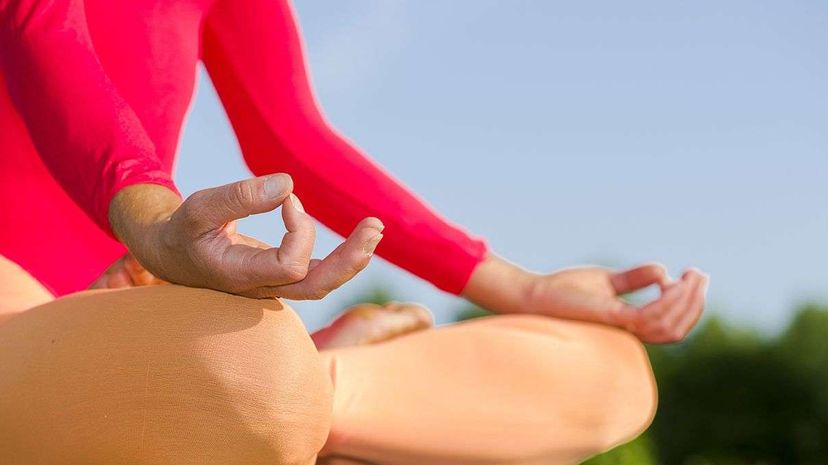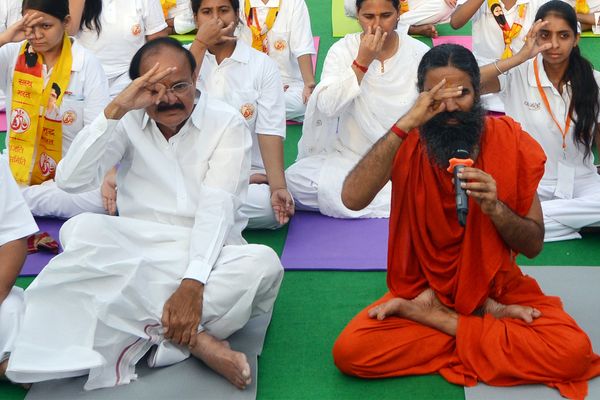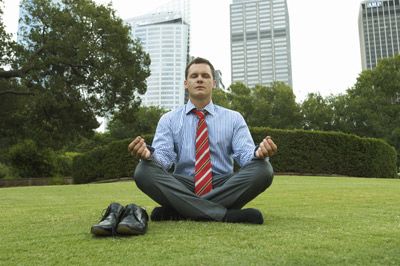
Sometimes you need to check out. Unplug your phone. Find a book to keep you company. And if you're feeling really overwhelmed, sitting alone in silence for days on end might sound downright pleasant.
Lucky for you, there are places just for that. If you're looking for a couple of days or even a month of silent reflection, you can find those. Need longer? Three months should get you through the rest of this year. To an extent, a silent meditation retreat is a choose-your-own-quiet-adventure.
Advertisement
What one is like depends on the practice. Vipassana meditation focuses on an Indian Buddhist tradition. Some practices use Zen teachings or Jesuit theology. And others are not based strictly on any particular teaching.
Make no mistake: Vipassana and other silent retreats aren't for the casual quiet person. While many of the courses allow for a bit of communication between teachers or volunteers and meditators for practical purposes, the schedules for Vipassana courses are strict. Up at 4 a.m., with about 10 hours of meditation throughout the day between periods of rest and meals — all in silence, without even a book.
Taali (last name withheld) has attended nine Vipassana courses, and even lived and volunteered at retreat center for nine months. She says that while sitting quietly by yourself might sound great, don't be fooled. "It's also very hard," she says. "When you're going through growing pains, it's hard and it hurts ... You're sitting there, allowing a lot of things to come up."
Some silent retreats are like vacations, with hot springs and massages, should that be your jam. But for Taali, it wasn't just a getaway. "I was not doing this as a hobby; I actually wanted some real, deeper changes in my life," she says.
Like a lot of folks, Taali used the silence to process a difficult period. "I was going through a very rough time in life back then. I had no idea what else to do. I wasn't decisive; I wasn't motivated," she says. "I had to just sit with myself for months to resolve that."
As for the extended lengths of the retreats, Taali believes it's necessary to take your time. "As time progresses, the point of the process is you become more and more focused in your attention," she says. "The thing with the 10-day course is not that you learn everything you need to learn on day one; [the days are] built upon each other." While you may pay attention to your breathing generally at first, you move on to focusing on how the breath touches your nostril, for instance.
That progression should make your focus narrower and sharper, she says. "[You] move from deep breathing to paying attention to sensations on your body and throughout the body and inside the body ... It's one of those experiential things."
One unexpected result is that Taali rarely spends much time meditating anymore. "Now that I've done all that work, I don't feel the need to do it because all of that heavy stuff has been looked at and let go," she says.
If you're scoffing at anyone who wants to sit in silence for days or months, you might be on the wrong side of science. Noise — we're talking the sound of traffic, airplanes, trains and general life — might lead to high blood pressure and cardiovascular health issues. In 2011, the World Health Organization and European Commission went so far as to quantify the effects of noise pollution on the European population and found an estimate that was appalling: Each year, traffic noise pollution takes away more than a million years of life from people in Western Europe.
So, if noise can hurt us, does silence help? A study meant to measure music's physiological effects on the body produced a strange result: A two-minute pause randomly inserted into the music demonstrated the lowest blood pressure, heart rate and minute ventilation (amount of air a person breathes per minute) in subjects. In other words, the strongest physiological markers of relaxation occurred during the silence. And studies have touted the ability of meditation to decrease pain sensitivity, increase empathy and reduce stress.
Taali says that she found the silence practical — even if it meant not getting to crack a book as distraction. "The point of any meditation is about going inside yourself," she says, "and if we're communicating with other people or we're reading things, all of that is external. At any point that we touch base, reconnect with the outside world, it feeds new information that then we are thinking about or trying to process. And that takes away from the point of being there."
Advertisement

